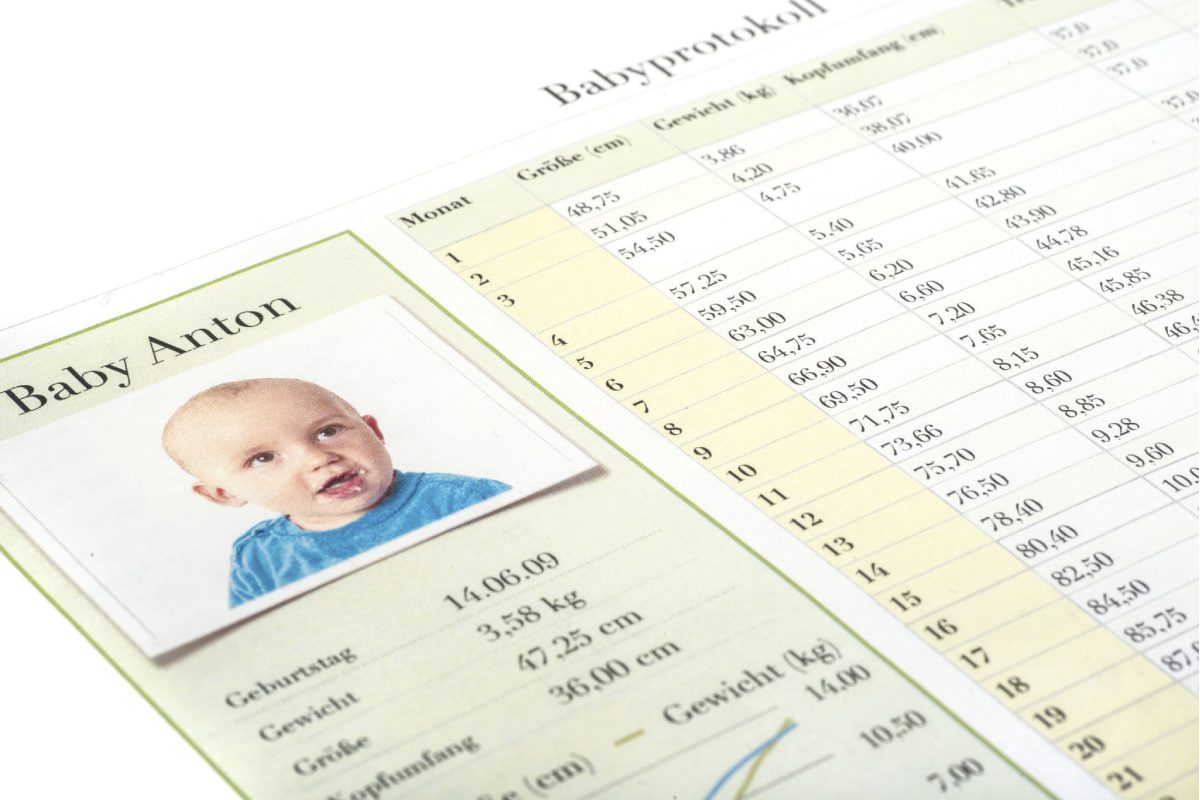Weight chart for babies and toddlers – How much should a baby weigh in the first year? Does it weigh too much or too little? Based on information from World Health Organization (WHO). And also, our baby and toddler weight chart lets you see if your baby’s weight is appropriate for their age. You will also find more information about weight gain in the first year of life.
A baby lies on an extraordinary scale for babies and laughs at the camera.
In this article
The birth weight
The weight of babies and young children
How much weight does your babe gain per calendar week?
The ratio of height and weight. And also clothing size, head circumference, and shoe size of your baby
Table of Contents
The birth weight
However, According to the World Health Organization (WHO), the average weight of newborn babies is between 3,300 and 3,500 grams, and a weight between 2,800 and 4,200 grams is careful normal. According to a education by the WHO, the differences in birth weight are completely natural and can be attributed to the mother’s stage and her height and weight, between other things.
The weight of babies and young children
The information in the following weight tables for girls and boys corresponds to information from the WHO (“The WHO Child Growth Standards”). Deviations of up to +/- 1,500g are standard. On the other hand, the percentile curves of the Robert Koch Institute show how the weight of babies develops on average.
This is how the weight of girls develops.
Moreover, This Weight chart for babies gives you the average weight of your girl from the 1st to the 3rd year of life.
And also age Weight chart for babies in grams
1st month (4 weeks) 4,200g
2nd month (8 weeks) 5,100g
3rd month (12 weeks) 5,800g
4th month (16 weeks) 6,400g
5th month (20 weeks) 6,900g
6th month (24 weeks) 7,300g
7th month (28 weeks) 7,600g
8th month (32 weeks) 7,900g
9th month (36 weeks) 8,200g
10th month (40 weeks) 8,500g
11th month (44 weeks) 8,700g
12th month (48 weeks) 8,900g
1.5 years 10.2kg
Two years 11.5kg
2.5 years 12.7kg
Three years 13.9kg
3.5 years 15kg
Percentile curve for body weight in girls
Therefore Percentile curve weight of girls 0 to 24 months.
This is how the weight of boys develops.
Moreover, This Weight chart for babies shows you the average weight of your boy from the age of 1 to 3 years.
And also age Weight chart for babies in grams
1st month (4 weeks) 4,500g
2nd month (8 weeks) 5,600g
3rd month (12 weeks) 6,400g
4th month (16 weeks) 7,000g
5th month (20 weeks) 7,500g
6th month (24 weeks) 7,900g
7th month (28 weeks) 8,300g
8th month (32 weeks) 8,600g
9th month (36 weeks) 8,900g
10th month (40 weeks) 9,200g
11th month (44 weeks) 9,400g
12th month (48 weeks) 9,600g
1.5 years 10.9kg
2 years 12.2kg
2.5 years 13.3kg
Three years 14.3kg
3.5 years 15.3kg
Percentile curve for the body weight of boys
Percentile curve weight of boys, 0 to 24 months.
However, the Weight table for children (2-10 years): everything about weight
Therefore You can see the importance of how your child’s weight develops between the ages of two and ten years.
How much weight does your babe gain per week?
Moreover, Your baby’s development will progress gradually within the first year. Your baby’s weight will also change significantly. A newborn usually loses weight at first. This is because babies excrete more than they can take in from food. After a few days, however, your baby will gain weight every day until the weight has already doubled in the first few months. By the first birthday, it will usually triple. On kindergesundheit-info.de, the Federal Center for Health Education recommends a weight gain of approx. 170 – 330 g/week in the first 0 to 2 months. From the 6th to the 12th calendar month, And also weight gain of approx. 40 – 110 g/week can be expected. And also, babies can vary significantly in size and weight.
Conclusion
So if your baby is a bit bigger or smaller than a baby of the same age – don’t worry. Deviations of a few grams, more or less, are harmless. Perhaps your baby would rather be an explorer than eat pap or suckle from your breast. Crawling and walking also consume a lot of energy. However If in doubt, ask your pediatrician at the next U-examination. He checks weight and height at every check-up and can tell you if everything is normal.

